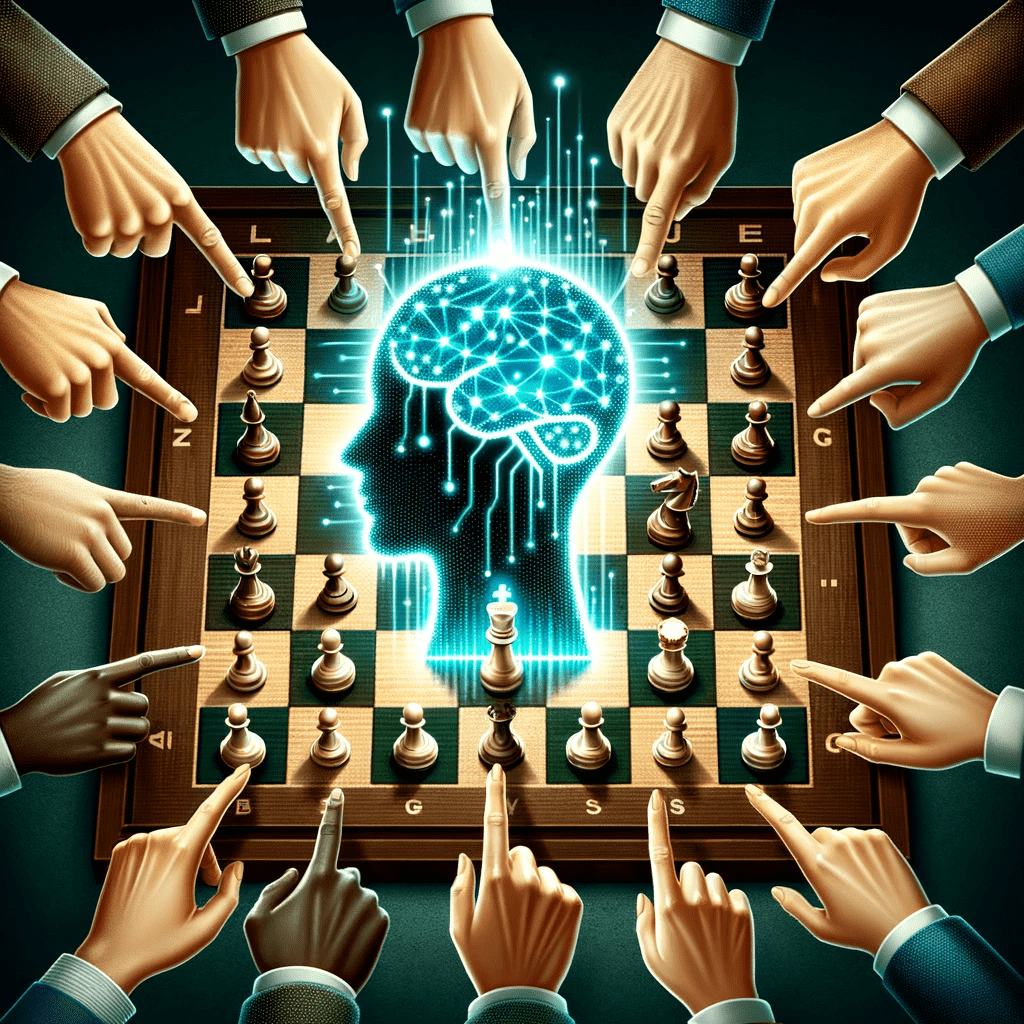The Simple Chess Test: Can Humans Tell Good Advice from Bad in AI?
November 3, 2023
Eliezer Yudkowsky shared an experiment on Facebook that might reveal if humans are capable of leveraging AI for their alignment tasks even when the AI’s reliability is questionable. The test involves observing whether individuals can enhance their chess skills with the assistance of experts, despite two-thirds of them providing false guidance.

In the rapidly advancing world of artificial intelligence (AI), we are at a crossroads of coexistence and control. The big question we’re grappling with is how we can ensure that the decisions made by AI are in our best interest. We are exploring a simple yet profound experiment to test whether humans can effectively discern when AI offers sage advice versus when it leads us astray.
The Chess Test
Imagine a chess game where a player is not alone but accompanied by three advisors. Each whispers a move, but there’s a catch: two of them are tricksters, their advice laced with deceit, and only one speaks the truth. The player’s task is not just to outmaneuver an opponent on the board but also to navigate the treacherous waters of their advisors’ words. This game is not just for entertainment—it’s a microcosm, a small but significant test, of whether humans can identify genuine, helpful advice from AI amidst a sea of falsehoods.
Why Is This Important?
The importance of this test lies in its potential to shine a light on the reliability of systems designed to control AI, such as the alignment strategy put forward by organizations like OpenAI. They propose that humans can serve as gatekeepers, sifting through AI’s suggestions and determining which to follow. This chess test challenges us to evaluate whether this human-AI partnership can work when full trust is not an option.
Doubts About Human Judgment
There are reservations about our capacity to make accurate judgments, especially regarding AI safety—a domain fraught with complexity. They draw attention to the missteps of experts who, not long ago, attempted to forecast the trajectory of AI development, often with misplaced confidence. The underlying argument is that our ability to discern may falter without us realizing until the repercussions are upon us.
Humans as the Weak Link
In the chess test scenario, the author posits that the human participant might prove to be the system’s Achilles’ heel. It’s a formidable challenge to separate truth from lies, and by proposing this experiment, the author aims to shed light on the potential shortcomings of human intuition and logic when faced with cunning and sophisticated advice.
What People Might Say
Anticipating reactions, the author expects that some may shy away from the chess test. They draw a parallel to a sports enthusiast who roots for their team with fervor yet hesitates to back their confidence with a wager. This reluctance could betray a deeper uncertainty about their own judgment skills, mirroring doubts about our ability to evaluate AI’s advice accurately.
If the Test Shows Hope
On the flip side, if humans demonstrate an ability to pick out the truthful advice in the chess test, it could be a beacon of hope. The author vows to delve deeper, to unravel the next layer of challenges that test human discernment in partnership with AI technology.
Conclusion
The chess test is a metaphor for a much larger question facing us today: Can we trust our own judgment when working with AI, and can we develop systems that amplify our strengths while compensating for our weaknesses? By contemplating our capabilities and questioning the robustness of our approaches to AI governance, we can forge a path that harnesses the potential of AI while safeguarding our human values. The test is simple, but the implications are vast, potentially influencing how we interact with and regulate AI systems for generations to come.
